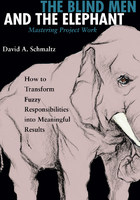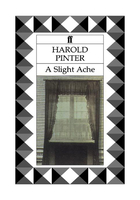It was summer and very hot. Georgette, the youngest of Madame Beck's children, took a fever. Désirée, suddenly cured of her ailments, was, together with Fifine, packed off to Bonne-Maman, in the country, by way of precaution against infection. Medical aid was now really needed, and Madame, choosing to ignore the return of Dr. Pillule, who had been at home a week, conjured his English rival to continue his visits. One or two of the pensionnaires complained of headache, and in other respects seemed slightly to participate in Georgette's ailment. "Now, at last," I thought, "Dr. Pillule must be recalled: the prudent directress will never venture to permit the attendance of so young a man on the pupils."
The directress was very prudent, but she could also be intrepidly venturous. She actually introduced Dr. John to the school-division of the premises, and established him in attendance on the proud and handsome Blanche de Melcy, and the vain, flirting Angélique, her friend. Dr. John, I thought, testified a certain gratification at this mark of confidence; and if discretion of bearing could have justified the step, it would by him have been amply justified. Here, however, in this land of convents and confessionals, such a presence as his was not to be suffered with impunity in a "pensionnat de demoiselles." The school gossiped, the kitchen whispered, the town caught the rumour, parents wrote letters and paid visits of remonstrance. Madame, had she been weak, would now have been lost: a dozen rival educational houses were ready to improve this false step-if false step it were-to her ruin; but Madame was not weak, and little Jesuit though she might be, yet I clapped the hands of my heart, and with its voice cried "brava!" as I watched her able bearing, her skilled management, her temper and her firmness on this occasion.
She met the alarmed parents with a good-humoured, easy grace for nobody matched her in, I know not whether to say the possession or the assumption of a certain "rondeur et franchise de bonne femme;" which on various occasions gained the point aimed at with instant and complete success, where severe gravity and serious reasoning would probably have failed.
"Ce pauvre Docteur Jean!" she would say, chuckling and rubbing joyously her fat little white hands; "ce cher jeune homme! lé meilleur créature du monde!" and go on to explain how she happened to be employing him for her own children, who were so fond of him they would scream themselves into fits at the thought of another doctor; how, where she had confidence for her own, she thought it natural to repose trust for others, and au reste, it was only the most temporary expedient in the world; Blanche and Angélique had the migraine; Dr. John had written a prescription; voilà tout!
The parents' mouths were closed. Blanche and Angélique saved her all remaining trouble by chanting loud duets in their physician's praise; the other pupils echoed them, unanimously declaring that when they were ill they would have Dr. John and nobody else; and Madame laughed, and the parents laughed too. The Labassecouriens must have a large organ of philoprogenitiveness: at least the indulgence of offspring is carried by them to excessive lengths; the law of most households being the children's will. Madame now got credit for having acted on this occasion in a spirit of motherly partiality: she came off with flying colours; people liked her as a directress better than ever.
To this day I never fully understood why she thus risked her interest for the sake of Dr. John. What people said, of course I know well: the whole house-pupils, teachers, servants included-affirmed that she was going to marry him. So they had settled it; difference of age seemed to make no obstacle in their eyes: it was to be so.
It must be admitted that appearances did not wholly discountenance this idea; Madame seemed so bent on retaining his services, so oblivious of her former protégé, Pillule. She made, too, such a point of personally receiving his visits, and was so unfailingly cheerful, blithe, and benignant in her manner to him. Moreover, she paid, about this time, marked attention to dress: the morning dishabille, the nightcap and shawl, were discarded; Dr. John's early visits always found her with auburn braids all nicely arranged, silk dress trimly fitted on, neat laced brodequins in lieu of slippers: in short the whole toilette complete as a model, and fresh as a flower. I scarcely think, however, that her intention in this went further than just to show a very handsome man that she was not quite a plain woman; and plain she was not. Without beauty of feature or elegance of form, she pleased. Without youth and its gay graces, she cheered. One never tired of seeing her: she was never monotonous, or insipid, or colourless, or flat. Her unfaded hair, her eye with its temperate blue light, her cheek with its wholesome fruit-like bloom-these things pleased in moderation, but with constancy.
Had she, indeed, floating visions of adopting Dr. John as a husband, taking him to her well-furnished home, endowing him with her savings, which were said to amount to a moderate competency, and making him comfortable for the rest of his life? Did Dr. John suspect her of such visions? I have met him coming out of her presence with a mischievous half-smile about his lips, and in his eyes a look as of masculine vanity elate and tickled. With all his good looks and good-nature, he was not perfect; he must have been very imperfect if he roguishly encouraged aims he never intended to be successful. But did he not intend them to be successful? People said he had no money, that he was wholly dependent upon his profession. Madame-though perhaps some fourteen years his senior-was yet the sort of woman never to grow old, never to wither, never to break down. They certainly were on good terms. He perhaps was not in love; but how many people ever dolove, or at least marry for love, in this world. We waited the end.
For what he waited, I do not know, nor for what he watched; but the peculiarity of his manner, his expectant, vigilant, absorbed, eager look, never wore off: it rather intensified. He had never been quite within the compass of my penetration, and I think he ranged farther and farther beyond it.
One morning little Georgette had been more feverish and consequently more peevish; she was crying, and would not be pacified. I thought a particular draught ordered, disagreed with her, and I doubted whether it ought to be continued; I waited impatiently for the doctor's coming in order to consult him.
The door-bell rang, he was admitted; I felt sure of this, for I heard his voice addressing the portress. It was his custom to mount straight to the nursery, taking about three degrees of the staircase at once, and coming upon us like a cheerful surprise. Five minutes elapsed-ten-and I saw and heard nothing of him. What could he be doing? Possibly waiting in the corridor below. Little Georgette still piped her plaintive wail, appealing to me by her familiar term, "Minnie, Minnie, me very poorly!" till my heart ached. I descended to ascertain why he did not come. The corridor was empty. Whither was he vanished? Was he with Madame in the salle-à-manger? Impossible: I had left her but a short time since, dressing in her own chamber. I listened. Three pupils were just then hard at work practising in three proximate rooms-the dining-room and the greater and lesser drawing-rooms, between which and the corridor there was but the portress's cabinet communicating with the salons, and intended originally for a boudoir. Farther off, at a fourth instrument in the oratory, a whole class of a dozen or more were taking a singing lesson, and just then joining in a "barcarole" (I think they called it), whereof I yet remember these words "fra?ch?," "bris?," and "Venis?." Under these circumstances, what could I hear? A great deal, certainly; had it only been to the purpose.
Yes; I heard a giddy treble laugh in the above-mentioned little cabinet, close by the door of which I stood-that door half-unclosed; a man's voice in a soft, deep, pleading tone, uttered some, words, whereof I only caught the adjuration, "For God's sake!" Then, after a second's pause, forth issued Dr. John, his eye full shining, but not with either joy or triumph; his fair English cheek high-coloured; a baffled, tortured, anxious, and yet a tender meaning on his brow.
The open door served me as a screen; but had I been full in his way, I believe he would have passed without seeing me. Some mortification, some strong vexation had hold of his soul: or rather, to write my impressions now as I received them at the time I should say some sorrow, some sense of injustice. I did not so much think his pride was hurt, as that his affections had been wounded-cruelly wounded, it seemed to me. But who was the torturer? What being in that house had him so much in her power? Madame I believed to be in her chamber; the room whence he had stepped was dedicated to the portress's sole use; and she, Rosine Matou, an unprincipled though pretty little French grisette, airy, fickle, dressy, vain, and mercenary-it was not, surely, to her hand he owed the ordeal through which he seemed to have passed?
But while I pondered, her voice, clear, though somewhat sharp, broke out in a lightsome French song, trilling through the door still ajar: I glanced in, doubting my senses. There at the table she sat in a smart dress of "jaconas rose," trimming a tiny blond cap: not a living thing save herself was in the room, except indeed some gold fish in a glass globe, some flowers in pots, and a broad July sunbeam.
Here was a problem: but I must go up-stairs to ask about the medicine.
Dr. John sat in a chair at Georgette's bedside; Madame stood before him; the little patient had been examined and soothed, and now lay composed in her crib. Madame Beck, as I entered, was discussing the physician's own health, remarking on some real or fancied change in his looks, charging him with over-work, and recommending rest and change of air. He listened good-naturedly, but with laughing indifference, telling her that she was "trop bonne," and that he felt perfectly well. Madame appealed to me-Dr. John following her movement with a slow glance which seemed to express languid surprise at reference being made to a quarter so insignificant.
"What do you think, Miss Lucie?" asked Madame. "Is he not paler and thinner?"
It was very seldom that I uttered more than monosyllables in Dr. John's presence; he was the kind of person with whom I was likely ever to remain the neutral, passive thing he thought me. Now, however, I took licence to answer in a phrase: and a phrase I purposely made quite significant.
"He looks ill at this moment; but perhaps it is owing to some temporary cause: Dr. John may have been vexed or harassed." I cannot tell how he took this speech, as I never sought his face for information. Georgette here began to ask me in her broken English if she might have a glass of eau sucrée. I answered her in English. For the first time, I fancy, he noticed that I spoke his language; hitherto he had always taken me for a foreigner, addressing me as "Mademoiselle," and giving in French the requisite directions about the children's treatment. He seemed on the point of making a remark; but thinking better of it, held his tongue.
Madame recommenced advising him; he shook his head, laughing, rose and bid her good-morning, with courtesy, but still with the regardless air of one whom too much unsolicited attention was surfeiting and spoiling.
When he was gone, Madame dropped into the chair he had just left; she rested her chin in her hand; all that was animated and amiable vanished from her face: she looked stony and stern, almost mortified and morose. She sighed; a single, but a deep sigh. A loud bell rang for morning-school. She got up; as she passed a dressing-table with a glass upon it, she looked at her reflected image. One single white hair streaked her nut-brown tresses; she plucked it out with a shudder. In the full summer daylight, her face, though it still had the colour, could plainly be seen to have lost the texture of youth; and then, where were youth's contours? Ah, Madame! wise as you were, even you knew weakness. Never had I pitied Madame before, but my heart softened towards her, when she turned darkly from the glass. A calamity had come upon her. That hag Disappointment was greeting her with a grisly "All-hail," and her soul rejected the intimacy.
But Rosine! My bewilderment there surpasses description. I embraced five opportunities of passing her cabinet that day, with a view to contemplating her charms, and finding out the secret of their influence. She was pretty, young, and wore a well-made dress. All very good points, and, I suppose, amply sufficient to account, in any philosophic mind, for any amount of agony and distraction in a young man, like Dr. John. Still, I could not help forming half a wish that the said doctor were my brother; or at least that he had a sister or a mother who would kindly sermonize him. I say half a wish; I broke it, and flung it away before it became a whole one, discovering in good time its exquisite folly. "Somebody," I argued, "might as well sermonize Madame about her young physician: and what good would that do?"
I believe Madame sermonized herself. She did not behave weakly, or make herself in any shape ridiculous. It is true she had neither strong feelings to overcome, nor tender feelings by which to be miserably pained. It is true likewise that she had an important avocation, a real business to fill her time, divert her thoughts, and divide her interest. It is especially true that she possessed a genuine good sense which is not given to all women nor to all men; and by dint of these combined advantages she behaved wisely-she behaved well. Brava! once more, Madame Beck. I saw you matched against an Apollyon of a predilection; you fought a good fight, and you overcame!















